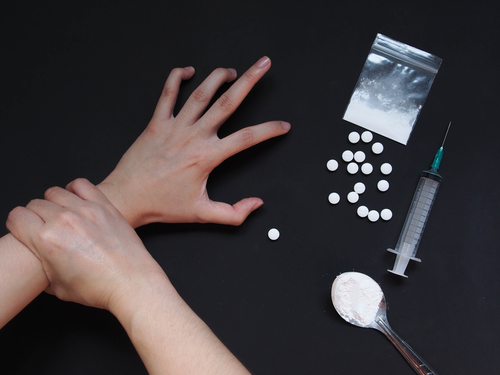Understanding the difference between a lapse and a relapse is crucial for addiction and recovery. While these terms may sound similar, they represent distinct stages in the process of substance use. Being able to differentiate between the two can help individuals in recovery recognize and respond appropriately to their behaviors, ultimately aiding in maintaining long-term sobriety.
In this article, we will discuss the causes of addiction, what lapse and relapse is, and relapse prevention strategies.
Understanding the Causes of Addiction
Before we can look into the differences between lapse and relapse, it’s important to understand the causes of addiction and why an individual may relapse. Addiction, also referred to as substance use disorder, is a complex condition characterized by compulsive substance abuse despite knowing the negative consequences. While there is no definitive cause of addiction, there are a multitude of factors that play into an individual developing an addiction. These factors involve a combination of environmental, genetic, and individual factors.
- Environmental Factors: The environment in which an individual lives and grows up can significantly influence their likelihood of developing addiction. Factors such as peer pressure, exposure to drug use, availability of drugs, and socioeconomic conditions can contribute to the development of addictive behaviors. Negative childhood experiences, such as trauma, abuse, neglect, or family dysfunction, also increase the risk of addiction later in life.
- Genetic Factors: Genetics play a significant role in addiction susceptibility. Research has shown that there is a hereditary component to addiction, meaning that individuals with a family history of addiction are more likely to develop addictive behaviors themselves. Genetic variations can affect how individuals respond to drugs, their sensitivity to substances, and their ability to regulate emotions, which can contribute to the development of addiction.
- Individual Factors: Certain factors can contribute to the development of an addiction. People with mental health disorders such as depression, anxiety, or attention-deficit/hyperactivity disorder (ADHD) have a higher risk of developing addiction. Substance use can sometimes be a way for individuals to self-medicate or alleviate symptoms of these conditions. Additionally, personality traits such as impulsivity, sensation-seeking, and low self-esteem have been linked to an increased susceptibility to addiction.

What’s a Lapse?
A lapse, also called a slip, refers to a situation in which an individual who is in addiction recovery briefly starts using alcohol or drugs again but quickly stops. This can be an essential step in recovery as it helps individuals from falling into a full-blown addiction. However, it can feel like a setback in their recovery journey. A lapse can serve as a helpful reminder to stay committed to recovery, but it can also be the start of the decline into relapse.
Learn More: How Long Does It Take To Break An Addiction?
What is Relapse?
Relapse involves a complete return to substance abuse. A relapse occurs when an individual who has been sober starts using substances again. This differs from a lapse, when an individual briefly slips but quickly stops, as a relapse is when the individual returns to full-blown drug addiction. Those in recovery often face a significant risk of relapse because chronic substance abuse can cause long-lasting changes in the function of the brain, even after achieving sobriety.
There are two types of relapse, traditional and freelapse. A traditional relapse occurs when an individual consciously decides to start using substances. On the other hand, a freelapse is when an individual accidentally relapses by mistakenly consuming drugs or alcohol. Sometimes, the process leading to a relapse begins weeks or months before actually using drugs or alcohol. Certain thoughts, feelings, and events can trigger cravings, increasing the risk of relapse if not addressed properly.
Stages of Relapse
Relapse typically occurs in three stages. These stages are:
- Emotional Relapse: This stage starts before an individual actually uses drugs or alcohol. During this phase, they may struggle to use healthy coping skills to manage their emotions. They might suppress their feelings, isolate themselves, deny their problems, and neglect self-care. Although they may not actively think about using at this point, avoiding emotions and high-risk situations sets the stage for a potential relapse in the future.
- Mental Relapse: In this stage, conflicting feelings about sobriety arise. While part of the individual wants to stay sober, another part battles cravings and secretly considers relapsing. Mental relapse may involve romanticizing past drug use, downplaying the negative consequences, and seeking opportunities to get high.
- Physical Relapse: This is the final stage where the individual actually uses drugs or alcohol. It may start with a slight lapse, such as having one drink or drug, but it can quickly escalate into a full-blown relapse, where the individual feels little control over their substance use.

Relapse Prevention Strategies
Once you have recognized and understood the differences between a lapse and a relapse, it is also important to know relapse prevention strategies. These are ways to help prevent relapse from occurring or from a lapse developing into a full-blown relapse. These coping strategies are designed to help individuals identify and cope with potential triggers, cravings, and high-risk situations that could lead to relapse. Some of the most common strategies include:
- Developing a Support Network: Building a support system of family, friends, or support groups can provide a vital source of encouragement, understanding, and accountability during recovery and help with relapse prevention. Regular participation in support group meetings, such as Alcoholics Anonymous (AA) or Narcotics Anonymous (NA), can offer valuable guidance and a sense of community.
- Creating a Relapse Prevention Plan: A relapse prevention plan is a personalized roadmap that outlines specific strategies and actions to take in the face of the potential risk of relapse. It typically includes identifying warning signs, listing supportive contacts, establishing emergency numbers, and outlining steps to take if a relapse seems possible. These prevention plans are typical to see in treatment programs within addiction treatment centers.
- Engaging in Healthy Lifestyle Choices: Maintaining a healthy lifestyle can significantly reduce the risk of relapse. Regular exercise, adequate sleep, balanced nutrition, and engaging in fulfilling activities can enhance overall well-being, boost self-esteem, and provide a positive focus for individuals in recovery.
- Addressing Co-Occurring Mental Health Conditions: Many individuals struggling with addiction also face underlying mental health conditions. Treating these co-occurring disorders simultaneously is vital for successful recovery. Seeking professional help and adhering to prescribed medications or therapy, such as cognitive behavioral therapy or experiential therapy, can contribute to relapse prevention and aid recovery.
Read More: Why Developing a Relapse Prevention Plan is Important

Addiction Recovery & Relapse Prevention at East Coast Recovery Center
Recovering from addiction is not an easy feat, and the road to recovery can have many twists and turns. While having a brief slip in sobriety can benefit some individuals, it often leads to a full relapse. Avoiding this relapse is essential in maintaining your sobriety, and to do this, making sure you understand the signs of lapse vs relapse is imperative. To assist in this recovery journey, seeking help from a treatment center is a good option.
East Coast Recovery Center, located in Boston, MA, is here to provide comprehensive, holistic, and individualized addiction treatment and mental health services to those in need. Our treatment facility provides various treatment options and therapies to ensure every need of our clients is met. We offer addiction treatment to those suffering from drug or alcohol abuse, and our mission is to ensure a safe, comfortable, and compassionate recovery.
If you or a loved one are struggling with addiction or at risk of relapse, contact us today to learn more about our programs. East Coast Recovery is here for you. Walk the path to recovery with us.











